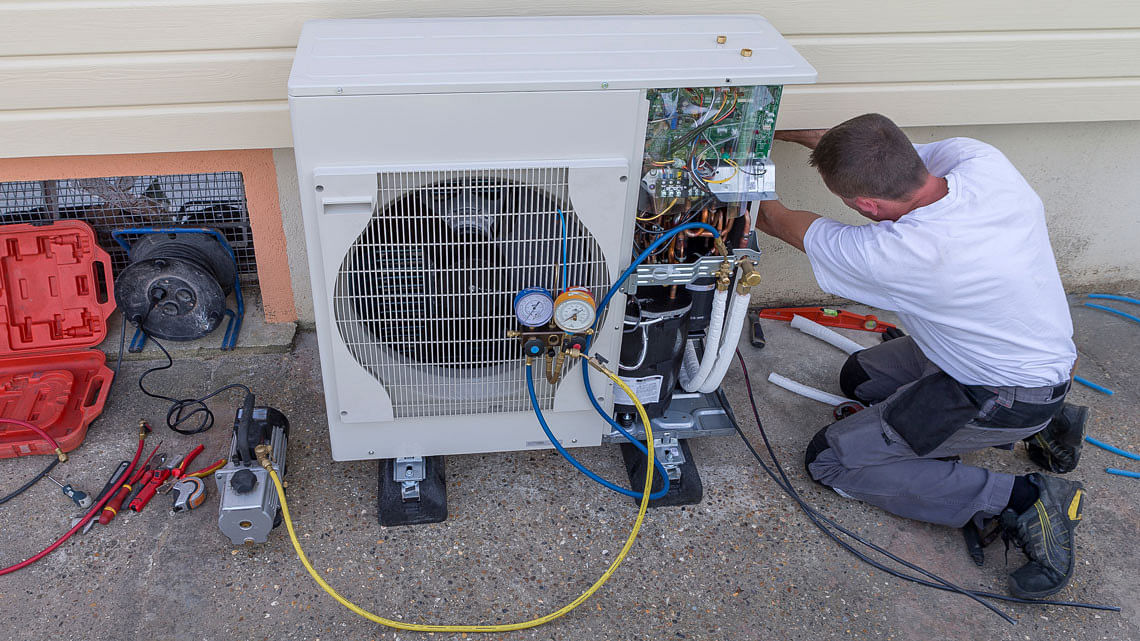
5 Best HVAC Company Bookkeeping Tips You Should Know
Jan 30th, 2023
HVAC businesses are part of a class of small businesses that are difficult to manage for one reason: you can be the best at what you do and still have a struggling business. HVAC technicians have to be knowledgeable about the service and products they provide, something that takes years of practice and skill to do effectively. Even after attaining a high degree of competency, building a client base and reliable reputation, and investing in your own company, many HVAC technicians and business owners can be surprised to find they're still operating at a loss.
All of the industry experience necessary to run a functioning HVAC company leaves little time to learn the minutiae of business accounting, bookkeeping, taxes, and payroll-unfortunately, these things are exactly what can keep even the best businesses from turning a profit. However, there are steps that busy HVAC technicians and business owners can take to keep their accounts in order and their books balanced. Let's take a look at five bookkeeping tips for HVAC companies.
Best HVAC Company Bookkeeping Tips
Accounting for HVAC companies is different from a goods-based business-even if some HVAC businesses sell units to customers. Businesses that are dependent on individual jobs have different cash flow elements than, say, a clothes store, which imports a set amount of products every month and then sells a certain amount. Typically, these amounts don't change very much from month to month.
HVAC accounting is more similar to bookkeeping for construction companies, in that each job undertaken needs to earn more than it takes to complete. But any HVAC technician, independent contractor, or construction firm owner knows that's easier said than done. Jobs can come and go depending on the season, and you might encounter unforeseen circumstances that drastically alter your deadline for completion, cost of materials, labor, etc. Each of the following tips is designed to help you keep on top of your cash flow and accounts so you can better identify profit loss, inefficiencies, and errors that are hurting your bottom line.
1. Always Keep Your Books Up To Date
This one might seem obvious, but a busy work schedule can make it difficult to devote enough time to managing your accounts. Start by creating a ledger where you record all of the purchases you make on behalf of your business and all profits. It doesn't have to be something extravagant, a simple notebook will do to start. What's more important is recording all of your financial records quickly and accurately, before you forget or the information otherwise becomes lost or outdated.
Keeping your expenses and profits up to date gives you a realistic view of your company's financial position and better positions you to make business decisions based on the most recent facts. Say you get the opportunity to take on a rush job, but you're expenses for the month are out of date. Since you might not see the profits of the work until the work is complete, you might have less money in your account by the end of the month than you initially thought-or even potentially overdrawn.
A helpful method of keeping your books up-to-date is to pick a time every week to sit down with your records and check them for discrepancies. Keep all receipts related to business expenses, and add up the totals when you're sitting down and focused solely on your bookkeeping. Checking your accounts frequently is a much smaller task than waiting until tax season to do all of your account maintenance.
See related: Small business tax services.
2. Make A Cash Flow Forecast
Keeping current financial records not only allows you to see where your business's money has gone but also helps you plan where it's going. A big part of HVAC accounting is planning for future business expenses and workflows, something called a cash flow projection. By checking past payments and income, you can predict what your future expenses might look like for similar jobs and price your labor and materials accordingly.
You can also project what future estimated accounts receivable might look like, giving you an idea of what your profit and loss statements might look like weeks, months, or even years in advance. Detailed record keeping allows for more accurate projections, meaning you can make more informed decisions that align with your goals for your company.
3. Digitize Your Processes
One of the best tips for HVAC accounting in the modern age is to ditch pencil and paper. While it's still a good idea to jot things down if you need to remember them, modern digital accounting software allows for quicker, more accurate data input, making it easier to stay organized when you're busy.
Basic accounting software can generate invoices, automatically calculate profit/loss statements, and reconcile bank statements. Other software types can even integrate with your business management software to do things like manage timesheets for automatic payroll adjustments or estimate your tax bill. When it comes to most small business accounting services, digitizing your workflow is an invaluable tool.
4. Maintain A Record Of All Equipment And Appliances
For HVAC accounting and bookkeeping, start with the big picture. Equipment and appliances like vehicles and tools will likely make up some of your company's biggest one-time expenses-not to mention the additional fuel, maintenance, repairs, etc. These are also likely the things that you require to complete the actual tasks your business requires, making them indispensable. Keep detailed records of the kinds of expenses you make for your large appliances and equipment and prioritize them in your cash flow projections. Keeping records of equipment and appliances can also help you around tax season, as certain expenses and maintenance of industry-critical equipment can be tax deductible, helping you save on the things you need.
5. Leave Your Bookkeeping To The Pros
Finally, if accounting for HVAC companies is more trouble than actually running an HVAC company, it never hurts to get help from professionals. Licensed, experienced small business accountants and CPAs handle all of the tedious-yet crucial-tasks your business needs to survive. Improperly managed books can result in profit loss and financial headaches at the least, and certain accounting practices can even end in audits and criminal liability. While hiring accounts to look after your books is an expense, it can be seen as a worthwhile investment in your business if the end result is more time for you to focus on applying your skills and finding new clients.
If you've been struggling with HVAC business bookkeeping, these tips and tools can help you build a foundation of responsible, effective accounting practices to protect your business and bottom line. If you decide that your accounts need professional oversight, or even if you just have questions about what bookkeeping and accounting services can do to help, Appletree Business Services has decades of experience in helping HVAC companies, independent craftsmen, and other tradespeople get a handle on their accounts and make more money. Contact us today for an initial consultation with one of our licensed business advisors.


Let’s Help Eliminate Your Stress
If you choose Appletree Business Services for your bookkeeping, payroll or tax needs, you’ll find that good things begin to happen in your business. Your common financial challenges will become simple with a clear map to create your ideal situation. More than that, we’ll identify your “typical” stresses and help make them go away.